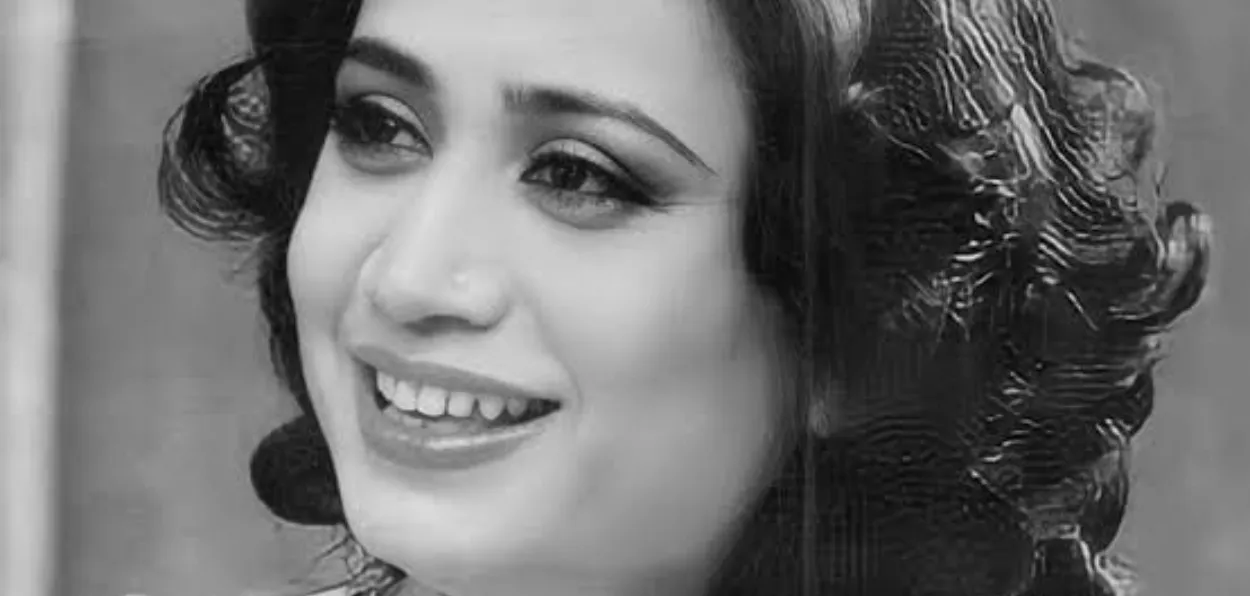
Saquib Salim
Among the Urdu-Hindu speaking people Parveen Shakir invokes the image of an ‘innocent and gullible’ girl who lives at the mercy of men begging for their love. In the words of Zia Mohiuddin, at first glance, Parveen’s poetry serves as a dosage for the ego of the Eastern men. nothing inflates their male ego more than a woman dependent on them
.
However, this image is for those who have read Parveen Shakir superficially or known her through social media posts only. A deeper study of her poetry reveals a courageous feminist poet.
In the introduction to her collection of poems Sadbarg, published in 1980, she declares, "I have sinned by being born in a society where having an independent thinking is a crime. Society committed a ‘mistake’ by not burying me in infancy and now to seal me inside a wall is difficult for their ethics. But, they are aware of their mistakes. So, now I exist and my existence has compelled me to circumambulate a dark well that had turned my legs into stone and my eyes into water - because unlike other girls I disagreed with wearing a veil. And, those who disagree always suffer." (Translated from Urdu).
The United Nations decided to celebrate 1975 as the International Women’s Year. Parveen Shakir believed that these celebrations are a farce. They cannot change the position of women in a patriarchal society. She wrote NaaTak (Play), a poem that allegorically compared these celebrations to a staged play.
In her poem, A Bumblebee, representing patriarchal society, tells a butterfly, representing women, to go outside the garden and see the world. As she starts enjoying the freedom of the outside world, the bumblebee tears down the wings of the butterfly and declares, the play has concluded.
Parveen wrote, “rut badli to bhanvaron ne titli se kaha, aaj se tum azad ho, parvaazo ki saari samte tumhare naam hui, jaao…..” (When the time changed bumblebees told the butterfly that she was free then onwards and now they could go to any direction and any length).
She calls out the centuries of subjugation of women when Parveen said that butterfly, “sadiyo ke jakde hue reshmi par phailaae aur uDne lagi” (opened her wings which were tied for centuries and started flying). At the end she calls this International Women’s Year a hypocrisy, and wrote that when the butterfly reached a certain height bumblebees came with chains of dew and, “apne kaale naakhuno se, titli ke par noch ke bole, ahmaq ladki, ghar wapas aa jao, naaTak Kahtm hua, Khwateen ka alami saal”(they tore down the wings of the butterfly with their dark nails and said, ‘stupid girls, the play has ended now come back to home’ the International Women’s Year)
The severest indictment of patriarchy is seen in her poem Bashire ki Gharwali (wife of Bashira). She starts by questioning the women, “Hai re teri kya auqat! Doodh pilane wale jaanwaro mai, Aey sab se kam auqat” (O women what’s your status! Of all the mammals, your social status is the lowest). In a fashion unknown to the literary world before her, she calls women another animal who feeds milk to their babies.
The poem goes on to tell that a woman suffers everywhere. A mother makes her do household chores and feeds more butter to her male sibling. As a woman attains adulthood, society including close male relations starts telling them how to wear, sit, or walk.
Parveen’s description of a marriage is the most blunt attack on the institution of marriage. Without mincing a word she wrote, “As you attained sixteen, a man (father) transferred the weight of his mind to the body of another man (husband). Only the house and the master changed but your job remained the same. Rather, there was an addition to your duties. Now you have to provide sex at night to the man who earned the bread and every year bear a child”.
Other mammals like buffaloes and cows are allowed to rest but a woman, according to Parveen, cannot rest. Of course, she is the lowest among all the mammals. If a woman sells her body they call her a prostitute and on trading emotions, she is called a wife. A woman does all this for “ek nivala roTi, ek katore pani ki Khatir”(a piece of bread and a bowl of water.)
In Tomato Ketchup Parveen attacks “intellectuals”. Dedicated to Sara Shagufta, another poet who died by suicide at the young age of 29, this Parveen tells how ‘intellectual’ men consider ‘women poets’ an easy lay. On the pretext of discussing literature, they tried to sleep with her and exploited her. She calls these men bhediya (wolf).
In several of her poems, she compared men with wolves and hounds looking for female bodies. The metaphor of a wolf was also used in Ek buri aurat (an evil woman) where she compared independent women who challenge patriarchy to evil women who save other women from these wolves.
